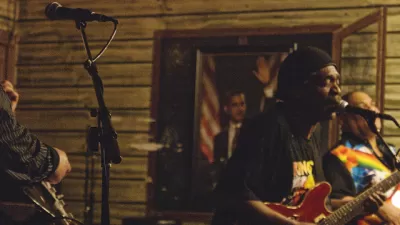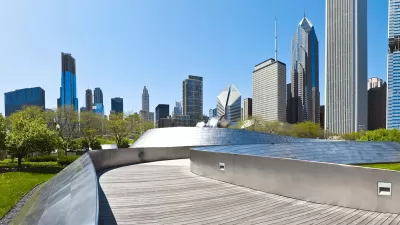The Chicago Tribune interviews Josh Squire, the entrepreneur responsible for Chicago's bike sharing pilot program.
Q. How much does this cost the city?
A. It doesn't cost the city anything. Since we put a couple of stations on park district space, if we get sponsorships, then the city will benefit.
Q. All the stations are near the downtown lakefront. Is this mostly for tourists?
A. Our idea is to demonstrate that this is viable for tourists, locals and area workers. As we grow we'll venture into neighborhoods and transit centers.
Q. It's expensive - $10 an hour if you don't have a membership.
A. I don't think it's expensive if you compare it to a CTA monthly pass or even I-GO or Zipcar. And how much does it cost you to park a car in the city?
A pass costs $35 a month, $25 for students. With the pass, the first hour of use is included. You have unlimited trips in that hour. If you want to keep it longer, it's an additional $2.50 per half hour, but we want to discourage that.
Q. Why discourage it?
A. Bike share is for short trips. Let's say you work at 541 N. Fairbanks and want to do an errand at City Hall. You take a bike to Daley Plaza, leave it there. Somebody else might take that bike and go to the John Hancock to eat lunch. A resident at the Hancock might take it to the museum.
Thanks to Franny Ritchie
FULL STORY: Bike Share: A slice of Paris in Chicago

Planetizen Federal Action Tracker
A weekly monitor of how Trump’s orders and actions are impacting planners and planning in America.

Restaurant Patios Were a Pandemic Win — Why Were They so Hard to Keep?
Social distancing requirements and changes in travel patterns prompted cities to pilot new uses for street and sidewalk space. Then it got complicated.

Maui's Vacation Rental Debate Turns Ugly
Verbal attacks, misinformation campaigns and fistfights plague a high-stakes debate to convert thousands of vacation rentals into long-term housing.

In California Battle of Housing vs. Environment, Housing Just Won
A new state law significantly limits the power of CEQA, an environmental review law that served as a powerful tool for blocking new development.

Boulder Eliminates Parking Minimums Citywide
Officials estimate the cost of building a single underground parking space at up to $100,000.

Orange County, Florida Adopts Largest US “Sprawl Repair” Code
The ‘Orange Code’ seeks to rectify decades of sprawl-inducing, car-oriented development.
Urban Design for Planners 1: Software Tools
This six-course series explores essential urban design concepts using open source software and equips planners with the tools they need to participate fully in the urban design process.
Planning for Universal Design
Learn the tools for implementing Universal Design in planning regulations.
Heyer Gruel & Associates PA
JM Goldson LLC
Custer County Colorado
City of Camden Redevelopment Agency
City of Astoria
Transportation Research & Education Center (TREC) at Portland State University
Camden Redevelopment Agency
City of Claremont
Municipality of Princeton (NJ)





























